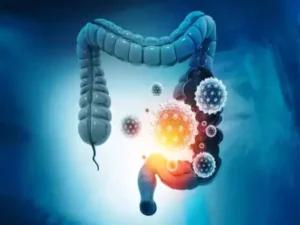The Effectiveness Of Diet On Gut Microorganisms

A recent study by scientists found how the composition of intestinal microbiota is influenced by a variety of factors such as nutrition and defensins (intestinal defense molecules). The research was conducted by scientists at Ume University in Sweden. The scientists discovered the potential function of these molecules, which is to prevent blood sugar levels from rising after consuming high-caloric food.
The scientists said defensins have a minor role in shaping the adult microbiota composition compared to diet. But defensins still have a vital role against microbial infections such as; research highlights their role against metabolic complications that arise from the intake of high-fat food.
Gut microorganisms refer to the trillions of microorganisms living inside the gut. Such microorganisms have been studied to understand their connection with many diseases that include obesity, diabetes, inflammatory bowel disease, and psychological disorders.
This microorganism community is seeded during birth and several factors help them to reach their final composition. These factors could be internal or external such as diet, medication, genetics, exercise, defense molecules (antimicrobial peptides), etc. These antimicrobial peptides are naturally produced (by the body) antibiotic molecules (i.e. defensin).
Defensins are the largest group of antimicrobial peptides. It is produced by all body surfaces including the skin, gastrointestinal tract, lungs, etc. These are considered the first line of defense in the immune system and are also essential in shaping the microbiota composition in the small intestine. However, the scientists couldn’t make it clear how big their effect was compared to diet.
To investigate this, scientists from Bjorn Schroder’s lab experimented using normal healthy mice. The researcher’s experiment helped in finding the effect of defensins, which was only a minor effect on shaping the overall microbiota composition.
The scientists also find that eating a Western-style diet while lacking functional defensins causes increased fasting blood glucose values. This indicates the importance of antimicrobial peptides in the human body.

What is gut microbiota?
Gut microbiota or gut microbiome are the microorganisms living in the digestive tracts of animals. These microorganisms are; bacteria, viruses, fungi, etc. This gut microbiota is involved in colonization, maintaining the intestinal epithelium, resistance to pathogens, metabolizing dietary and pharmaceutical compounds, controlling the immune system, etc.
The microbial composition is highest in the colon (the longest part of the large intestine), whereas the stomach and small intestine contain a few species of bacteria. This is because the high acidity of the stomach cannot let them survive. According to the studies, bacteria are the maximum number of all microorganisms in the gut. As a consequence of its highest number in the colon, bacteria make up to 60% of the dry mass of feces.
These microorganisms are beneficial in various aspects such as; they play a direct role in defending against pathogens. Without the presence of gut flora, it would be difficult to digest some of the undigested carbohydrates in animals. This is because gut flora contains enzymes a human cell lacks. Any alteration in the number of these gut microorganisms may lead to health problems.











